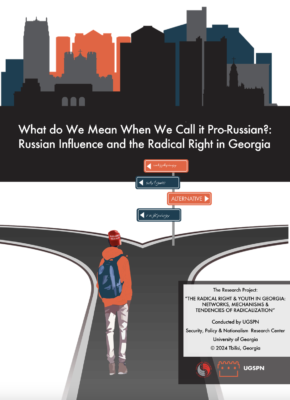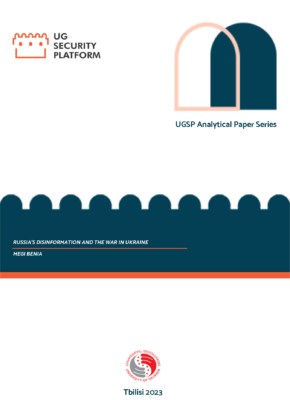
 The Radical Right and Youth in Georgia: Networks, ...
The Radical Right and Youth in Georgia: Networks, ...
This research analyzes contemporary trends of radicalization within Georgia, with a specific focus on the
young adult demographic. Central to this study is the deconstruction of mobilization strategies employed by the radical right, understanding their appeal among young supporters, and illuminating the motivations behind their engagement with various radical-right discourses and groups. Additionally, the analysis unpacks the commonly attributed “pro-Russian” label associated with the Georgian far right and explain the nuances of this association.
 Russia’s Disinformation and the War in Ukraine
Russia’s Disinformation and the War in Ukraine
Megi Benia
Executive Summary
Russia’s war of aggression against Ukraine has proven unsuccessful in many unexpected directions and the disinformation campaign with the aim of spreading the false narratives about its military engagement in Ukraine is among them. A general overview of respective events and moves has shown that Russia has been forced to adjust its approach on disinformation and increase its focus on the domestic audience. The article aims to demonstrate that in these efforts, Russia tries:
At the international level, Russia attempts:
After providing specific facts that support the existence of these patterns, the article tries to explain the reasons behind Russia’s changed behaviours and claims that it was caused by: